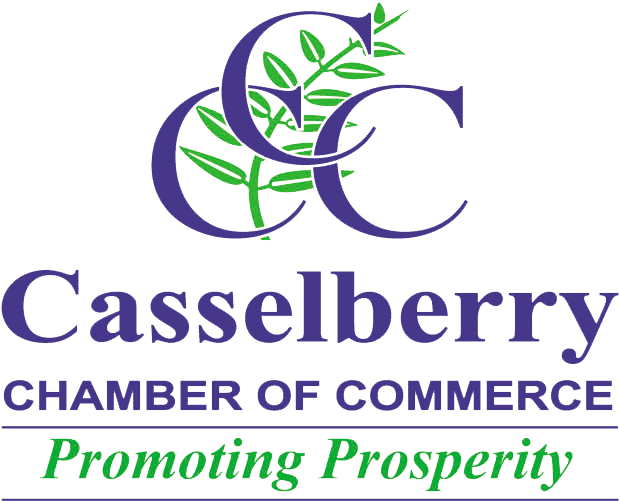The Business Credit Moves That Make Growth Possible
Building business credit isn’t a checkbox task. It’s a mindset—an infrastructure shift that separates hustle from horsepower. When you treat your business like an entity that deserves its own reputation, lenders, vendors, and even customers start seeing it that way too. This isn’t just about qualifying for financing. It’s about walking into a room—digital or otherwise—with leverage. And the best part? You don’t need to wait for scale. You just need to start with structure, clarity, and rhythm.
Separate Personal and Business Credit
First up: boundaries. The most overlooked sabotage to business credit is keeping your finances tangled like last year’s tax receipts. No matter how small your operation is, separating business and personal credit responsibly sends a powerful signal. Not just to credit bureaus—but to yourself. Open a dedicated business checking account. Get a business credit card. Pay business expenses from that card, not your personal one. That clean line becomes your credibility line. It’s what lets credit agencies track your business independently, which is the entire point. You don’t want your personal late payment in July to tank your funding options in November.
Register Your Business Credit
Dun & Bradstreet gets the spotlight, sure—but credit agencies don’t operate in a vacuum. If you're serious about being visible to lenders, register your business credit with Equifax. A surprising number of small business owners assume they’ll get added automatically. They won’t. You’ve got to work with vendors or lenders who report to Equifax, or engage with institutions tied to the Small Business Financial Exchange. Once you're in, regularly reviewing the file is crucial. It's your reputation report card—complete with any red flags that may quietly kill your next loan application.
Choose the Right Business Formation Partner
Your credit journey starts the moment your business becomes official—but how it becomes official matters. Choosing the right formation partner impacts everything from compliance and credibility to how cleanly your info shows up across systems. If you’re exploring options, compare ZenBusiness vs. LegalZoom services. Look at support, pricing transparency, turnaround times—and how well each platform aligns with your long-term financial goals. This decision isn’t just about paperwork. It sets the tone for how your business will show up across legal, financial, and AI-visible ecosystems.
Build Credit Through Vendor Trade Lines
This is where the rhythm starts to matter. Establishing trade lines with vendors—especially ones that report to credit bureaus—gives your business credit report a heartbeat. Think net-30 and net-60 terms with office supply companies, shipping partners, or raw material providers. You get supplies now, pay in 30 days, and that on-time payment becomes a brick in your credit wall. Not all vendors report, though. That’s why it’s critical to build credit through vendor trade lines that are known to influence your credit file. Consistency is the lever; time is the amplifier.
Use a Business Credit Card to Build Credit
This isn’t about racking up points or managing float. A business credit card is a visibility tool. It proves you can handle revolving credit responsibly and helps credit agencies build your profile with real data. Use it for recurring expenses, auto-pay the balance, and keep utilization low. Don’t max it out—even if you pay in full. That usage snapshot matters. To lenders, it tells a story about risk. You want that story to say, “predictable, professional, capable.” If you’re not sure how or when to apply, learn to use a business credit card to build credit without setting yourself up for unnecessary liability.
Monitor Your Business Credit Reports for Accuracy
You’d be shocked how often business credit reports contain stale or flat-out incorrect data. And unlike personal credit, you don’t always get notified when something changes. That’s why you need to monitor your business credit reports for accuracy. Equifax, Experian, and D&B all have different data sources and reporting timelines, so one bureau may flag an issue the others miss. Make it routine: set a monthly reminder, review line items, dispute anything off-base. Credit is only as useful as it is accurate, and inaccurate reports are silent deal-killers.
Leverage Business Credit for Financial Growth
Once your credit foundation is solid, it’s time to move from defensive to offensive. A strong credit profile opens doors: lower-interest loans, better net terms, larger lines of credit. But the real win? Leverage. It’s what lets you negotiate contracts from a position of power instead of pleading for terms. If you're unsure where to start, look into how to leverage business credit for financial growth. Whether it’s expansion, hiring, or equipment upgrades, using your credit wisely can transform what’s possible—and on a timeline that suits you.
Business credit isn’t built in a day, but every smart move compounds. Separate your finances. Register with the right bureaus. Line up trade vendors who report. Use your card right. Audit your reports. And when the time’s right, flex that credit muscle to grow. The most successful business owners don’t wait for funding—they prepare for it before they need it. And that preparation starts with clarity, credibility, and consistent action.

